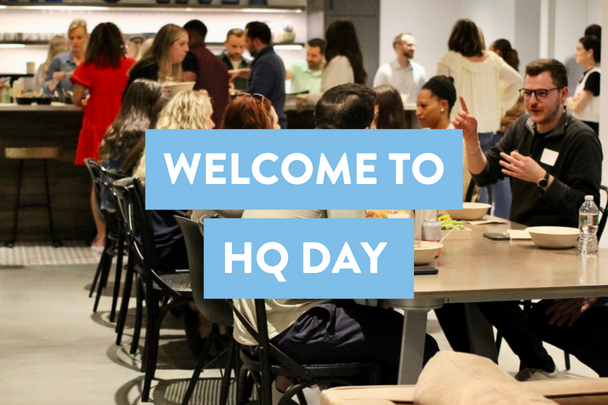Coronavirus (COVID-19) is impacting people and businesses across the globe. When something extraordinary happens, extraordinary measures must be taken. Communication plans are an essential part of crisis response. To process, address and heal, it’s critical that organizations lead with compassion in the workplace.
There are a lot of components to a successful crisis communication strategy. But, if there is one key takeaway, it’s that your response must be meaningful. It’s vital that leadership communicates openly and frequently to both internal and external stakeholders. Compassion in the workplace requires vulnerability. Your messaging should be empathetic, and sentiment should be accompanied by relevant action.
Meaningful Communication
1. Environment
Leaders looking to develop meaningful communication should start by creating an environment where people can freely express how they are feeling. No matter the circumstance, it is common for people to want to make sense of their pain or grief. Fostering discussions with employees and providing outlets for peer-to-peer engagement can help them find comfort. Stream and Yammer are two products offered by Microsoft that can help create an environment for greater expression, collaboration and engagement from your teams while working remotely.
It’s imperative to recognize that we are all human. Business must continue, but not at the expense of our emotional well-being. That’s actually counterproductive. Feeling anxious or upset at work is shown to lower productivity. So, make sure your team has an open environment to heal. Getting work and our daily lives back to a healthy place may take some time. But, doing everything you can now to support compassion in the workplace will earn greater confidence for your organization and its leadership.
2. Shared Experiences
Last week, I was personally touched by a FaceTime call I received from Atrium’s founder and CEO, Rebecca Cenni-Leventhal. Beyond the comforting words she offered about the state of the business, she sincerely wanted to know how I was feeling. Not surprising for the one we’ve dubbed “Chief Empowerment Officer,” her words were both caring and uplifting. I’d been working non-stop (as had she!) and was a little embarrassed of my less than stellar hairstyle and big, goofy glasses. But there she was in the trenches with me, and it was meaningful.
Virtual or not, shared experiences connect people. There is something to be said about seeing a person’s facial expressions as they empathize with you. Replicating emotion in text form does not hold the same value. In times such as these when face-to-face interaction is limited, “live” applications through social media and virtual meeting software are invaluable platforms to genuinely connect with employees, clients, partners and the rest of the world. If you are uncomfortable with real-time conversations for fear of saying the wrong thing or feeling like you could fumble your words, consider recording a video message to share. Then, you can review and edit in advance as needed.
For what it’s worth, I appreciate bloopers. They simply humanize us–and that’s where compassion begins. So, don’t get too hung-up on appearances when the time comes to lead.
3. Presence
While being physically present is regarded as critical to most crises, COVID-19 presents a unique challenge in this regard. The good news is that we are living in a digital world. So there are still many ways to be present while social distancing. The most important thing is to be present emotionally. Personalized, positive and consistent messaging goes a long way in showing that you care during a difficult time.
If being available to someone who is in pain makes you uncomfortable, it’s important to understand they can feel that uneasiness. Avoiding them makes matters worse. Even simply communicating your organization’s missions and values can help put many worried minds at ease. It’s important that employees feel connected during trying times. We all need reminders of our goals and purpose to our work. Sometimes the chaos of traumatic events can cloud this understanding. Communicating with compassion in the workplace helps those who are struggling to process.
Maintaining confidence from your staff and clients is imperative during a crisis. Messages of reassurance can only do so much. As a part of your overarching communication plan, it’s important to incorporate actionable measures.
Meaningful Action
1. Tradition
Above and beyond company communications, gestures from an organization and its leaders can be impactful. Consider honoring or reviving a beloved tradition. You could also create a new custom to serve as a reminder of your resilience during challenging times. Being a part of a team helps us to feel less alone during our struggles. Compassion in the workplace is remembered long after we heal.
Alternatively, you can step away from the traditional and break-up old routines. Trying something new can invigorate your workforce with renewed energy. Consider skipping the weekly business update for an interactive video message from the CEO instead. It’s important that your staff is motivated to keep pushing past the new challenges they are facing. Inspiration can come in many forms. Be sure to keep it flowing.
Employees feel valued when they see caring gestures from their employer. And yes, so do clients. Even if you don’t see the results immediately or directly, gratitude is often returned in the form of loyalty.
2. Resources
If there are any resources or funds you can allocate to meaningful COVID-19 action, now is the time. Up-to-date safety precautions, news, health benefits or any other resources you have allocated to Coronavirus should be communicated and shared regularly. Information should be readily available to your organization and those your business is supporting. Circulate materials within relevant email distributions, social media posts and other corporate communications. Creating a dedicated COVID-19 page within your company website can broaden the reach of your resources.
If your business can still afford to take on expenses at this time, the world and our economy need your help. There is an immense amount of skilled, readily available talent seeking opportunity. Open roles, including those on a temporary basis, are in high demand. And, there are a great deal of interim solutions available to support your contingent workforce needs. It’s important we keep as many programs running as possible. Students are already missing school because of the virus. Don’t let them miss out on an internship opportunity with your company as well. Consider a virtual intern program. Together, we can grow even more innovation.
If you don’t have the capacity to fund large programs or increase your hiring efforts, start small. Can the budget you were using for office snacks provide grocery deliveries to the elderly? What other meaningful response can your organization generate? If there is something leaders and/or employees can offer personally, encourage them to do so. We’ve seen a variety of personal gestures from leaders including meal deliveries to first responders, nurses and doctors. Any act of kindness at this time is welcomed and needed.
3. Influence
Your influence as a leader is valuable. People need their voices heard. And, in times when we are all hurting, we look to our leaders for guidance. Use your leadership skills to benefit the healing process. Listen to how employees are feeling. Understand how you can help. By leveraging social media accounts and other communication channels, leaders can use their influence to support people in need. Whether you share a simple reminder to take a deep breath or provide daily motivation mantras, people are listening. Use your leadership platform for social good. Compassion in the workplace requires timely and meaningful action. Difficult times often define the characters of people and organizations. Now is the time to be extraordinary!
To counterbalance the pain and grief we experience from traumatic events like the Coronavirus (COVID-19) pandemic, we must encourage meaningful communication and action, even in small ways. Empathy is contagious. And, compassion in the workplace is an outbreak I’d prefer to have making headlines.











